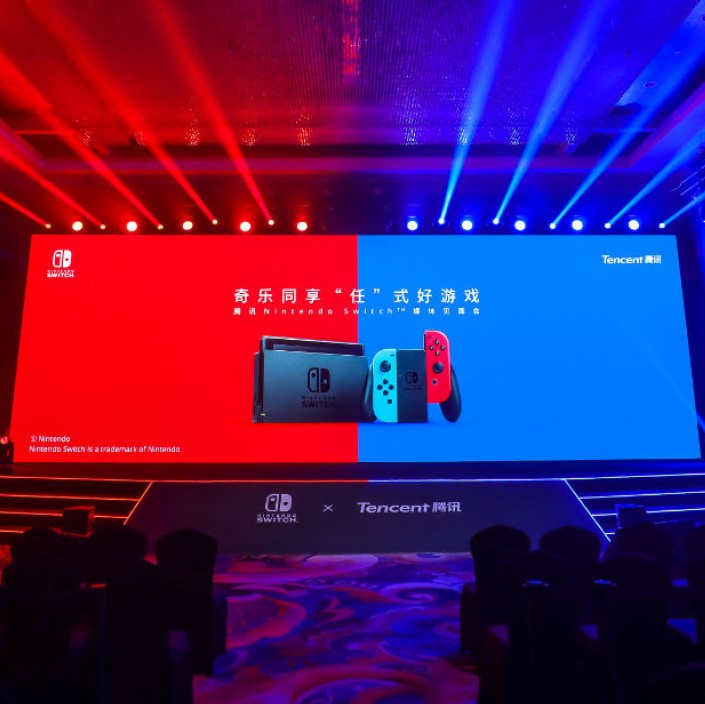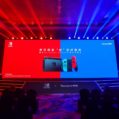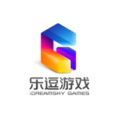Tencent Nintendo Switch Sells 50,000 Units on Release; GameStop Posts Net Loss of USD$83.4m (£63.4m)
by Mathew Broughton on 11th Dec 2019 in News

TheGamingEconomy Daily Digest brings you the trending business stories in gaming. In today’s edition: Tencent Nintendo Switch sells 50,000 units on release; GameStop posts net loss of USD$83.4m (£63.4m); and Gosu.ai raises USD$2.8m (£2.1m).
Tencent Nintendo Switch sells 50,000 units on release
The Tencent Nintendo Switch sold more than 50,000 units in China on its release day of 10th December 2019, according to estimates compiled by Niko Partners. Retailer JD.com reported 105,000 reservations and 20,000 actual sales, with Tmail reportedly having sold 10,000 units by 10am local time on release date. The strength of the launch, despite the prevalence of grey market sales in the country along with only a single title available at the time of writing (New Super Mario Bros. U Deluxe), ensures that the device is on target to reach 100,000 sales by the close of 2019. When both grey market and legitimate sales are accounted for, analysts at Niko Partners are predicting that the Nintendo Switch will replace the PlayStation4 as the leading console device in China by 2022.
Following the release of the device, Nintendo (TYO:7974) share price rose by 2.9% to reach JP¥46,990 (£328.50), hitting its highest intraday level since 9th May 2018. Webush Securities advisors, speaking to CNBC, estimate that the Tencent Nintendo Switch will sell a maximum of 10 million units over the course of its lifetime, reflecting the underdeveloped legal console market in the country, which currently accounts for only 1.3% of total gaming revenue according to Niko Partners.
GameStop posts net loss of USD$83.4m (£63.4m)

GameStop has posted a net loss of USD$83.4m (£63.4m) in the third quarter of the 2019-2020 financial year, with revenue decreasing 25.7% year-on-year to £1.438bn (£1.092bn). Sales of hardware and software decreased by 45.8% and 32.6% respectively, reflecting overall market reduction in consumer spend driven by anticipation for the next generation of console devices, as well as increasing preeminence of digital sales. Intriguingly, the company has been prolific in repurchasing shares over the year, with the aim of relisting its stock when Sony and Microsoft release their new consoles in Q4 2020, bringing back 22.6 million shares at an average price of USD$5.11 (£3.88) for USD$115.7m (£87.89m) in this quarter alone, with year-to-date repurchasing activity totalling USD$178.6m (£135.7m) for 34.6 million shares, 34% of the outstanding total.
During the earnings call accompanying the results, GameStop chief executive George Sherman revealed that GameStop would be shuttering its operations in the Nordics, with the firm expecting to have wound down its presence in Denmark, Finland, Norway, and Sweden, by the close of 2020. This follows significant layoffs in the US in August this year, totalling 14% of the company's workforce, including the firm's gaming magazine Game Informer.
At the time of writing, GameStop Corp. (NYSE: GME) share price has fallen in pre-market trading, down 13.76% to USD$5.61 (£4.26) per share.
Gosu.ai raises USD$2.8m (£2.1m)

Gosu.ai has raised USD$2.8m (£2.1m) in a funding round led by Brighteye Ventures, with additional contributions from existing investors and Skype co-founder Toivo Annus. The Vilnius, Lithuania-based company is behind an eponymous AI-powered video game coach, which offers live and post-match analysis to players to enhance their skills in a given title, with League of Legends, Dota 2, and PlayerUnknown's Battlegrounds (PUBG) currently supported. The firm has raised USD$5.6m to date, which includes a previous funding round of USD$1.9m (£1.44m) in March 2018 with investors including Gagarin Capital, Runa Capital, and Sistema VC.
In a statement, Brighteye Ventures lead investor Alex Spiro said, “Part of Brighteye’s core thesis is to invest in companies leveraging cutting-edge technologies (AI and machine learning) to improve coaching and training across disciplines via real-time feedback. Gosu.ai does exactly that, targeting the burgeoning sector of competitive gaming and esports through a live AI-powered coach. We are excited to help Gosu.ai continue to support more enthusiastic gamers and to develop just-in-time learning at a massive scale.”







Follow TheGamingEconomy